April 13 State Bar Hearing
The following is the transcript of the April 13, 2006 motion hearing held by the North Carolina State Bar Disciplinary Hearing Committee. The transcript was converted from the PDF file released by the State Bar. While we have made efforts to ensure that the conversion produced an accurate rendition of the original text, minor errors may remain. Links to the transcript in pdf format (separated into five sections due to the size of the file) appear at the end of the post. Emphasis has been added to some of the more informative or entertaining passages.
THE CHAIRMAN:
Good afternoon. We're here this afternoon in the case of The North Carolina State Bar against Michael B. Nifong, Defendant, 06 DHC 35. We are here on the Defendant's Motion to Dismiss contained in his Answer.
.
My name is Lane Williamson. I am chair of this Hearing Committee. By phone we have Mitchel Tyler, who is the lay member of the Hearing Committee, and also Sharon Alexander, who is the attorney member of the Committee.
.
We have also representing the State Bar Katherine Jean and Doug Brocker, and representing the Defendant Dudley Witt and David Freedman, and Mr. Nifong is also present.
.
Mr. Witt, I'll ask you first. I think I indicated to counsel that unless anyone wanted to have a hearing, I thought that the briefs would be sufficient for us to deal with the motion. I believe you asked for a hearing, and that's in the discretion of the chair under our rules. And so bearing in mind that, of course, we have your motion and we have your written memorandum in support of the motion, but we'll hear from you now.
MR. WITT:
Thank you.
.
And first off, I appreciate the opportunity to be able to come and argue this motion. There has been a lot of material that's been prepared, both the Amended Complaint, as well as the Answer, that contain a lot of matters. And so I wanted to make certain that I had an opportunity to come and kind of try to say what I think my motion is about and what it's not about.
.
First and foremost, my motion does not address or deal with anything related to the pre-trial statements that were made by Mr. Nifong.
THE CHAIRMAN:
I think that's apparent from the motion.
MR. WITT:
And it also doesn't deal with anything related to alleged improper or false comments to the court. Also, it doesn't relate to any matters that happened at the Grievance Committee or any alleged agreement between Mr. Nifong and Dr. Meehan.
.
What I address it to is the particular portions of the Complaint, which are basically outlined on page 30 in paragraphs (c) and (d) of the "Therefore" clause. And one of the other reasons that I want to make certain that we have this hearing is, I'm not certain that I really understand what the State Bar's position is as we deal with those issues also. I've read their brief. I know you've read my brief, and I know you have the cases that are up there. But what--how I read these allegations is that Mr. Nifong did not properly comply with discovery as is outlined by the United States Constitution, by the discovery statute, which at this point is subject to appellate review. It's a new statute and it's been amended by a June 22nd order.
.
And I want to go first to the issue of the constitutional claim, and in that regard, I submit that the State Bar is the one that has the burden of proof in this matter. The burden of proof is clear, cogent and convincing evidence. We don't need to come forward with any evidence.
.
And it seems that what they are saying is that Mr. Nifong not providing information through discovery when there had been no trial can be a constitutional violation. They have not cited---
THE CHAIRMAN:
Let me ask you a question. Is the Constitution violation, that is, the Brady violation, in your view a prerequisite to a violation of Rule 3.8(d)?
MR. WITT:
Well, I think--I believe that you have to have an understanding on the front side from the State Bar of what is required. So I would submit to you since there haven't been any guidelines for what is the appropriate timing and for what is the amount of discovery that you need to give over, that a good place to start is the law of the United State Supreme Court and the statutory and state case law which outlines what is a reasonable time for discovery within a criminal process.
.
And I have not seen any matters from the Bar alleged or brought forward in their brief that outline for a prosecutor to come here and see what the requirements are as far as timing. And what I see the State Bar Complaint saying is a prosecutor could comply with the Constitution and the statutes and he could still be in violation of the Rules of Professional Conduct.
THE CHAIRMAN:
I believe that to be the case myself.
MR. WITT:
And you need to know what the guidelines are and as far as discovery is an ongoing process. You get matters in on the front side. You have a chance to study them. One of the things we're talking about in this particular case is a report of an expert. When you get a report of an expert in, you need to have time to digest it and study it and get it off in discovery. The only way in a criminal trial like we're talking about in the underlying case that you really use it is at trial. You don't have pre-trial motions like you do in a civil proceeding or a State Bar proceeding.
.
So I believe it would be incumbent upon the State Bar to establish what rule or case law or regulation in the rules he violated other than not timely complying with discovery, what is that as far as a road map for a prosecutor to understand and make certain that they are properly complying with the Rules of Professional Conduct as interpreted by the State Bar.
.
And so I looked at this allegation that they must be saying that it relates to the Constitution statutory violations that are outlined in there. And if not, what is it that would give a prosecutor guidance as far as what those terms are if they have not violated any of the Constitution or state procedural rights?
.
That's the underlying basis of why I think they have the burden proving that he violated an existing standard. They can't articulate the standard to take the position that they can discipline when they're in compliance with the Constitution without any guidelines I think leaves prosecutors in a terrible position.
THE CHAIRMAN:
Let me ask my question again. Do they have to show a violation of the Constitution as a prerequisite to show a violation of Rule 3.8(d), in your opinion?
MR. WITT:
I think that would be a prudent rule to have. I think you would need to either show a violation of the Constitution or the statutory violation. You would have to show some violation that you would have some guidance as a lawyer to go back and look, and this is what is there.
.
So I'm not saying it's absolutely the Constitution, but they've alleged that that's what it is. I don't know what else they're alleging other than not timely discovered--not timely providing discovery or not fully disclosed matters that are out there.
.
In this particular case the State Bar Complaint has alleged that the underlying defendants in the Duke Lacrosse Case got all of the information from Dr. Meehan. They--the State Bar is contending that a report--the results of a report is not a report. They're also contending that the prosecutors in the State of North Carolina must now come forward and actually have their experts provide a summary of everything that's in there, and they're also--the way the allegations are going in the Complaint, they're saying it needs to be done early on.
.
If you look at the expert's rules that are out there that are at issue, rule--the second part of the discovery rule, it provides that as far as an expert--let me go back as far as the facts in this particular case.
.
We have an allegation that Mr. Nifong should have memorialized his discussions with Dr. Meehan. There is no allegation that a court ordered him to do it. They can say that he misrepresented the facts to the court, but they have a misrepresentation claim; that is, they don't have a claim that he was ever ordered by a court to do it.
.
And then you go back and you look at the discovery statute that is there. Again, I know you've read the brief. We incorporated the argument of the Attorney General's Office in support of the proposition that the amended statute should not be viewed to have "statement" include all witnesses that the prosecutor talks to.
.
And as you know, the argument that the majority of the Court of Appeals in State v. Shannon determined was not actually what the law was, that a statement used to be something that had been signed off by the witness or had been transcribed or some other way that there was an affirmation from the witness that that was their statement.
.
We are now combining the two different rules. We are combining the expert rule, which Dr. Meehan has, with the regular witness, police investigative rule, you know, the normal prosecutorial file and the police department file rule. And they're trying to get him--him included in the witnesses out there.
.
It wouldn't be consistent with the previous interpretation of the statute. And it also would mean that you get down in the expert portion of it, if you look at the rule it says you only need to provide a report of an expert who you reasonably expect to call at trial. So it deals with trial issues.
.
It can preclude a prosecutor from going and getting a consulting expert if they have to provide everything under the expert witness rule.
THE CHAIRMAN:
Let me ask you this question. We're not dealing with expert discovery. We're dealing with it as an adjunct to the duty to disclose exculpatory evidence. That's different from a statute that governs expert discovery. The rule, if you look at rule 3.8(d), and let's confine it to the model rule version that was in effect until November 16th, it's pretty straightforward. I mean, it just says:
"Make timely disclosure to the defense of all evidence or information known to the prosecutor that tends to negate the guilt of the accused or mitigates the offense."It doesn't talk about tying that to a constitutional violation or to a discovery statute violation. It just says "thou shalt do this." So why is it even relevant to a violation of 3.8(d) that we consider the discovery statute? Yes, it's alleged there, but in subparagraph (c), "did not make timely disclosure to the defense of all evidence or information known to him that tended to negate the guilt of the accused in violation of former Rule 3.8(d) of the Revised Rules of Professional Conduct, as well as." So that's in addition. They're alleging that in addition to the violation of Rule 3.8(d).
.
But, you know, we're here to enforce the Rules of Professional Conduct. We're not here to enforce discovery rules. They may have something to do with what we're talking about, but I don't think that that's--that we look to the discovery rules or that we even look to the Constitution, because, you know, Brady is not co-extensive with 3.8(d). And many commentators have said that, and, indeed, Kyle v. Whitley, Justice Souter acknowledged that 3.8(d) is broader than they have interpreted the Brady rule. And it's very broad. And we're here on a motion to dismiss. How do you get around that?
MR. WITT:
I get around that by you used the word "timely." What is the definition of timely that a prosecutor needs to comply with? If he gets a report in on August 28th, does he need to mail it off on September 1st? If he needs some time to study something, can he have time to study it? If, as in this case as the Complaint has it, there's experts that have matters, there's court orders that are in place that says it will be provided by further orders of the court, it is alleged that it was provided by further orders of the court in the course of the regular litigation.
.
So I would say that there were procedures and mechanisms that were out there, as alleged by the State Bar, which shows that he was timely complying with discovery. And I think you have to have some definition out there so that prosecutors known what "timely" is when we are dealing with an issue of an attempt to subject a prosecutor's license to discipline for not complying with the State Bar's interpretation of what timely is if he is in compliance and there have not been damages to a defendant's constitutional due process right to a fair trial and if he is in compliance with the statutory and judicial decisions that have been made in the underlying case.
.
If the commentary to the rule said timely means immediate, within seven--I think timely is seven days, or something like that, you have a set guideline so you know what you're operating under. And that's the point of my motion is that I think you need for due process for prosecutors--in particular Mike Nifong in this particular case--I think you need to provide some guidance to let people know what their obligations are.
.
You can see that in the underlying civil action--I mean the underlying criminal action, there's a question of what a statement is. And it can vary, and it can vary as far as cases going along. But if it is the position of the State Bar that that rule gives them--gives the State Bar unfettered decision-making power on what it deems to be timely, it doesn't afford the due process rights to a prosecutor to know what it is that fits in that guideline.
THE CHAIRMAN:
Well, I agree with that, there needs to be some guidance as to what a timely disclosure would be. And I've looked at that, and I think there's not much precedent on it. But I have found a case that's In the Matter of Attorney C, 47 P.3d 1167, a Colorado case from 2002, which was applying the ABA Model Rule 3.8(d), which is what we were dealing with up until November 16th. And I like their test. And unless somebody convinces me that there's a better test, I think that's the one we're going to apply.
.
And it stated:
"If the exculpatory evidence is material, then the prosecutor must disclose that evidence in advance of the next critical stage of the proceeding whether the evidence would particularly affect that hearing or not."And I think that gives pretty good guidance.
MR. WITT:
Well, applying that guidance to the allegations in the State Bar's Complaint, there were not, I would submit to you, any critical proceedings that had occurred in the criminal case.
THE CHAIRMAN:
How many hearings were there between--as I understand it--and correct me if I'm wrong--and let's not forget, we're taking the well-pleaded allegations of the Complaint, of the Amended Complaint, which I think you've got to admit is a well-pleaded Amended Complaint, as you have a well-pleaded Answer.
.
And deeming those to be true, as I see it from the allegations, that the allegations are that Mr. Nifong knew in regards to the DNA evidence that there were other individual DNA found on the person or the clothing from the rape kit of the accuser when he met with Dr. Meehan. And after that, there were several hearings in the underlying criminal case. Whether they dealt with the DNA evidence or not, taking into account and giving the State Bar the benefit of all inferences, why can't any one of those be a critical stage of the proceeding for purposes of your Motion to Dismiss? They may not be at trial, but after all, we're not trying the case here today. We're only testing the sufficiency of the allegations of the Amended Complaint.
MR. WITT:
Well, as it relates to that, the June 22nd hearing was a hearing which set up the procedure. The order was entered, as alleged by the State Bar, for turning that stuff over at a reasonable time prior to trial as further directed by the court. The Court directed it be turned over, the underlying data that was in Dr. Meehan's possession, on September 22nd, 2006. It was ultimately turned over, according to the State Bar Complaint, on October 27th, 2006.
.
I would contend to you that those are all compliance with the orders, and I know it's well pled, but those proceedings came along, and we're dealing directly with discovery and we're dealing directly with the underlying data that was contained in the DNA Security report. And the State Bar has also alleged that it's not sufficient to turn over the underlying data, which is different than what I believe the Brady issue is, that you need to disclose favorable material evidence which would have affected the trial. And that again has a "trial" as a component within there.
THE CHAIRMAN:
Well, let me ask you about that. I would agree with you, for a Brady violation, in order for it to be reversible error, you have to have a situation where there was a trial and it was not revealed prior to trial. And, of course, we don't have that here.
.
But wouldn't it be anomalous to say that because we didn't have a trial that there can be no violation of Rule 3.8(d), simply because somehow it was discovered before trial? I mean, should a prosecutor, who, again taking in every inference available to the plaintiff, who intentionally tries to withhold that information, get a free pass just because somehow it has come to light prior to trial?
MR. WITT:
Well, according to the United States Constitution, if there's no--I mean the United States Supreme Court, if there's no constitutional violation, there can be no violation of the prosecutor's duty to disclose.
THE CHAIRMAN:
I disagree with you there. There would be no constitutional Brady violation. That's a different thing. Brady violation and Rule 3.8(d) are different in several respects. Basically, a Brady violation requires that the evidence, the exculpatory evidence, be material. That is not, at least in old Rule 3.8(d), a requirement. There could at least be a violation of Rule 3.8(d) by failure to disclose even immaterial exculpatory evidence.
.
There is also generally considered to be an intent requirement under Rule 3.8(d). Now, that's been changed somewhat to give a negligence standard. But for a Brady violation--and I think it's the Agurs case that says--if there's a constitutional violation justifying a new trial, it's because of the character of the evidence and not of the prosecutor. But here we're dealing with the character of the prosecutor.
.
So at least to the extent that we deal with intention, for instance, just a hypothetical, if a prosecutor has an investigating officer and someone has, other than the defendant, confessed to that officer and the prosecutor goes to him and says, "You've got to tell me everything you've got. You've got to document everything that you found in your investigation." And the investigating officer keeps that a secret, that is surely a Brady violation, but it is surely not an ethical violation on behalf of the prosecutor who has done everything to try to get that information.
.
So I think this notion that you have to have a constitutional violation in order to have an ethical violation is not correct.
MR. WITT:
Well, a couple of points that I would make.
.
One, as you indicate, this is a case of first impression in the State of North Carolina . And if you choose to judge this case by the standard you articulated in the case out there, it would be the first interpretation of the statute to provide guidance to a prosecutor, even Mr. Nifong. And so he would not have known of what that standard was at the time he was conducting the discovery in the underlying case.
.
And so there gets to be a due process issue in this particular circumstance. You've got to have knowledge of what your duties are and what you have to go forward.
THE CHAIRMAN:
I don't think so. I think if you look at 3.8(d), I mean, that is guidance. And there is guidance in the ABA Standards for Criminal Justice.
.
You're talking about discovery statutes. That's one thing. I think that you've got to--you know, any prosecutor is deemed to be aware, as is any lawyer, of the Model Rules of Professional Conduct. And Rule 3.8(d), if you read it, is very broad: Make timely disclosure of exculpatory evidence, whether it's asked for or not. You know, that's independent of any discovery obligation that he has. And he has a discovery obligation for all kinds of evidence, whether exculpatory or not. And let's face it, in a criminal case most of it is inculpatory evidence, and, you know, you see a lot of that. Very rarely do you see too much exculpatory evidence. So I hear you.
MR. WITT:
I understand your position. Let me ask you to clarify something.
THE CHAIRMAN:
Okay.
MR. WITT:
The allegations in (c) and (d) of the "Therefore" clause have among the violations are things that were done wrong. And remember, there's a lot here. We have a trial in June.
THE CHAIRMAN:
I know.
MR. WITT:
So we've got discovery that's going to go on, and it needs to move along fairly quickly and you've got a pretty hard schedule.
THE CHAIRMAN:
Yes, June will be upon us.
MR. WITT:
I'm also trying to make certain that I understand what parameters are out there related to discovery that I'm talking about, and in this regard. It seems they have allegations that there are violations of the North Carolina , Constitution and statutory allegations in the June 22nd order.
.
If I can establish that they don't have grounds nor could they from their own pleadings to support a finding that that was there, I would submit that it should be something that should be dismissed so that I don't need to deal with it in discovery and I can limit what I'm getting ready to try in front of you, including the standard that is articulated in the case out West.
.
So I would contend that if I can establish that those violations aren't there as a matter of law--my argument goes back to whether it is a matter of law related to those arguments--it's one less thing to deal with. We'll deal with--
THE CHAIRMAN:
Well, evidentiary, you know, you're still going to have to deal with everything else, including whether he made timely disclosure. I think that's independent of the constitutional argument, and I don't think that that really has much bearing on the scope of discovery or indeed the evidence that we're going to receive at trial.
.
I think it's almost a medieval, scholastic argument to argue about whether is there a constitutional violation if there's no trial.
.
I'd say, okay, yeah, I see your point, because it's never going to be litigated unless there is a trial where it doesn't come out. You know, the only other circumstance where failure to reveal exculpatory evidence may have a bearing on a defendant's rights is whether if he pleads guilty based upon the assumption that there's not that exculpatory evidence out there.
.
That may have been litigated. I believe it has at some point. I don't know what that is. But, of course, that doesn't apply here either.
.
I would say to you as an academic matter, if you have, as is alleged here, an intention not to reveal the exculpatory evidence, you have at least--and I'll analogize this to a tort--you have essentially a wrong with no damage, damnum absque injuria. But it doesn't matter in this case because we're dealing with 3.8(d). I can tell you, at the end of the day whether that's a Brady violation or not, I don't think it's going to be important to us. We're dealing with 3.8(d). And, you know, it's alleged that it also violates the Constitution, but it's not going to change the parameters of discovery, I don't believe, and I don't believe it's going to change the evidence at the hearing.
.
Now, as far as the discovery statute goes, I think that may have a bearing as to establish did he violate a discovery order, because that is a separate--that's a separate Rule of Professional Conduct that governs that. And we'll have to deal with that.
.
But as far as dealing with that on a motion to dismiss, we can't really deal with that from this standpoint. My first question to you was going to be, getting back to even before we get to the substance of your argument, well, why shouldn't we say that--why should this motion not be denied on the basis that it requires us to consider matters outside the pleadings, outside the face of the Complaint? This is a 12b6, you know, and you're asking us to consider, okay, there's a report out there, there's 1,844 pages of underlying data to consider, there's orders out there. Now, some of that we can take judicial notice of, if we want to, but I think that's a lot to swallow on a motion to dismiss.
.
So, I mean, I realize that still may be helpful to go through this and give you some guidance going forward, but I think one way to look at this is that on a motion to dismiss, you're going outside of what we can consider. And so, well, deny it. Let's just go to the hearing and sort it out there.
MR. WITT:
Well, I understand the parameters of 12b6, but one thing about the way things are pled in this case is they're very specific. And I don't think you need to go outside--
THE CHAIRMAN:
And they don't have to be as specific as they are. This goes way beyond a notice pleading. You've got a lot of notice.
MR. WITT:
Right. And what that ultimately shows is that the defendants know about the underlying data because it's clearly outlined in their report that they knew about it after they got the documents October 27th. And the discovery statute, which is not outside of this court's matters you look at on a 12b6, because it's statutory law, says:
.
"Produce at a reasonable time prior to trial by orders of the court."
.
And the pleadings in this matter show that there was an order of the court that said, "You have this period of time to produce this stuff." Their pleadings then go on to say, "We got it. We found this stuff. Look at this." And then you even have an opportunity to go and depose. In essence in a criminal case, we don't see much of that. You actually get to cross-examine that witness prior to trial. Put him up on the stand.
.
So to the extent that is all matters that's in the pleading and/or statutory law. And I don't think you need to go outside the pleading. The only thing that I was requesting you to go outside the pleading for, since they alluded to part of the June 22nd Order, is that--and they referenced it--the only thing that I had in there going outside the pleading was to have the full order in there that said he would be required to provide the underlying data at a reasonable time prior to trial as ordered by the court. So that's my response on the 12b6 issue that you just raised.
THE CHAIRMAN:
Well, let me ask you about this, too. I mean, you seem to put a lot of stock in the notion that, yes, it is alleged that through the provision of the underlying data, which again, 1,844 pages of underlying scientific data that we don't have before us, that were produced in October after an order in June that, yes, that information is in there.
.
Now, let me play devil's advocate with you for a moment here. Say this was a civil case and you had an interrogatory to the effect of, tell me what the results of the DNA testing were. And you use Rule 33(c) to say "Here are the business records, the underlying data. Go figure it out." And you have 1,844 pages of stuff you've got to go through to try to figure it out, you wouldn't be happy with that, if that's the response you got.
.
And, indeed, if we're talking about inferences to be drawn from the allegation--and again, I don't want anybody to get the impression that we're drawing any inferences, because we don't have any evidence. We're not talking about evidence. We're talking about the allegations. But that would--an uncharitable person would say if you were trying to hide the information, that not only did the DNA testing not match any of these lacrosse players under suspicion, but also that there was--there were positive results for other people. If you're trying to hide that, you would do exactly that. You would dump the information, rather than simply say, "Yeah, there were four other guys' DNA found," you know the one statement that you want to know.
.
And so if we're--and intent is important here. And we're going to have to figure out at the hearing as best we can from the evidence what Mr. Nifong's intent was. And, again, an uncharitable person would say, "Well, that's the way you do it if you're trying to hide it, is to do this the way he did."
.
And again, we're on a motion to dismiss. We aren't trying the case. So, I don't quite see that argument prevailing at this stage. How do you respond to that?
MR. WITT:
Well, I would respond to--granted we're at 12b6. I fully understand what those parameters are. You read my brief. I think legally it relates to some of that Constitution, statutory stuff, that there's sufficient stuff alleged in the Complaint that can support that claim.
.
As relates to the comment about "you buried the stuff in your report," again, this is a State Bar proceeding--most of the panel are lawyers--and you have an expert, the other side gets an expert. It's the experts that figure that out.
.
That's kind of putting the duty on the prosecutor to understand all of the science, too. And that's why in a civil case like you gave as an example, you're going to have an expert to refute their expert, or you're going to hire one to tell you what's there and what's not there.
.
The same thing in a criminal action. You get experts. We do a lot of--because you know we do a lot of criminal cases, we do a lot of murder cases and other ones. There's volumes of discovery. And you get the discovery in, and you go get a court order to get an expert, if you have an appointed client, and then you go on and have your expert say what's in there and what does it say.
And that's just part of the adversarial process I would submit to you that is there, and you need to have an opportunity to have your experts review it so you can understand so you know how to cross-examine.
.
And the way this complaint is alleged it is almost requiring the prosecutors to not have the ability to sit and understand the underlying data in the case and be able to present it effectively. Because you're saying to provide a summary of everything that's there rather than the underlying stuff, that doesn't get you to the level of where you can sit down and say, "Well, how do I ask this question? How do I ask that question? Is that something we need to write down." I talk to them about, "Can I ask you this question or should I ask it this way?" That gets into trial strategy.
THE CHAIRMAN:
Well, no--no. It doesn't get into that because we're not talking about the nuances of the science here. We're talking about DNA testing that was done. And, of course, everybody--you know, whether it's justified or not--puts a lot of credence in that. And it's one thing to have--well, as a layman, I understand when the person who does the testing tells me, "I didn't find anything on these lacrosse players."
.
I also understand as a layperson if he tells me, "But we found DNA from other men." I also understand as a lawyer that it's one thing--you know, using the old thing--absence of evidence is not evidence of absence. But here, knowing that there's testing that has found DNA from other people, that is evidence of absence. And I don't need to be--I don't need to understand anything about the science. That's all I need to understand. And if I know that, doesn't that alone just raise the inference that that's got to be reported in any kind of credible, quote, report of his results? That's an inference I draw from the allegations. Again, I'm not--I don't know what the evidence at the hearing is going to be, but those are the allegations.
MR. WITT: Well, responding to that, the first thing that I think that position overlooks is, we have a rape shield statute in this case.
THE CHAIRMAN: I read that argument, and I don't buy it. Not for discovery. That's for evidence at trial. I have read, was it Professor Everett's explication of that, and I think that's preposterous.
MR. WITT: Well, I think that goes back to the timing issue, okay. I think if it is something that's so clearly admissible, maybe you have a different timing perspective to look at. But on this one, when you have to go through those other scenarios, is it--is it unreasonable to make certain that there's a little bit of timing from the time you get it in September--
June to October.
MR. WITT: June to October, yeah. Most criminal cases aren't tried on the speed that a State Bar case is tried. They go for a period of time. Prosecutor's offices have limited resources in the State of North Carolina. There are a lot of trials going on. There were high-profile trials that were going on in Durham County. You only have so many employees that can help keep track of moving the documents along.
THE CHAIRMAN: Well, wait a minute. How does that--you know, it's simple. I mean, as I understand it--tell me if I'm wrong--the Answer--and we're not looking at your Answer, we're really looking at the Complaint. But I just kind of to set the stage going forward, as I understand it--and tell me if I'm wrong--I believe your Answer admits that Mr. Nifong knew from meeting with Dr. Meehan that there were positive results for these other individuals. Is that true?
MR. WITT: That's correct.
THE CHAIRMAN:
Okay. And there is I think asserted in your Answer to the effect--and I think it's an issue for trial to be heard--which is that Mr. Nifong had not yet focused on--he was looking for evidence to link the players to the accuser's allegations, not--and had not focused on what might be exculpatory.
.
I would still say, though, again just looking at the Complaint, even if he was focused on that, I mean, just doesn't that--as a layperson--I mean, it just hits you in the face. You know, when you do turn your attention to what's exculpatory, that somebody else's DNA has been found. Again, motion to dismiss. You know, we hash all that out at the hearing. I just don't see where this gets you on your argument on your motion to dismiss, which after all, it's all deemed to be true and all the inferences that are drawn in favor of the State Bar.
MR. WITT: I understand what the Chair's perspective is related to that point. I know it's 12b6. If it is the Chair's position--
THE CHAIRMAN:
I don't want to say anything for myself. I want to make it clear that the other Panel members and I have not spoken about this at all, other than to schedule this. And, you know, when we deliberate about this, we'll talk about it. And, indeed, you know, I'm playing devil's advocate with you, so don't necessarily draw any conclusion as to what we're going to do.
.
Go ahead.
MR. WITT:
All I was going to say, it's 12b6. I'm not drawing any conclusions, but I can see that you feel that there's sufficient allegations alleged to make it by this. I don't feel it necessary to just sit here and try to talk for forever to try to dissuade that thought process.
THE CHAIRMAN: I don't want you to do that. I want you to say what--you know, I want your argument to be fully presented, and don't let me cut you off.
MR. WITT: And part of what is here, is because we are kind of in a case of first impression, is I think it's important to have this hearing to understand what--the manner in which the Committee is going to be reviewing and addressing the standards and the requirement that they're going to be judging Mr. Nifong by in this case.
I believe I've made my arguments, but I have--I have made them in my brief. I came down here to try to articulate them in case there was some question. I learned that we may or may not be operating under a guideline from a citation that you gave out in the Pacific Reporter.
THE CHAIRMAN:
Well, I'll just tell you. I agree with you, of course, this is a case of first impression in this state and there are not many cases that I have seen from anywhere that deal with these sorts of issues. And that's also true in regard to the pre-trial statements.
.
But I will tell you that it is probably premature to say what our standard is going to be, but at least as of today--and you know, I've given it at least $15 worth of thought here for today--that's the clearest guidance that I found in terms of determining what is a timely disclosure. And, of course, nobody has briefed that. And that might be something that in the pre-hearing briefs, you know, if somebody's of a different opinion or wants to push a different test, to go ahead and do that. But, you know, that's getting ahead of ourselves, because again, we're here on a motion to dismiss.
.
But as you say, we're on a pretty fast track here. And we are able maybe to address some other things and give you some guidance as to what standards we're going to be looking at. That's the best guidance that I have found. Not to say that that's what we're going to do.
.
And maybe to go beyond that just a little bit, and again, I am speaking just for myself and not for the Panel, I had occasion, of course, in going back and looking at this motion to go back through and look at the Amended Complaint and look at your Answer. And it seems to me that based upon what is admitted is not in controversy, the issues really are fairly simple. And I do believe that its various counsel such as you and Mr. Freedman and the Bar's counsel can get together and eliminate for us at the hearing what is not genuinely in dispute.
.
For instance, very few, almost if any, of the statements are in dispute. Many of the facts relating to the DNA evidence are not in dispute. What's really--the issues here are pretty simple, I mean, it seems to me. Did he talk too much in the pre-trial statements? Is there a legitimate law enforcement purpose for those statements? If so, what is it? Let's hear it. And on the DNA evidence, did he reveal what he should have revealed by the time he should have revealed it?
.
And then, suffusing all of that is, what was his intent, which of course, we can only draw from the circumstances. As you know, you can't usually have direct evidence of intent. But, you know, that's going to be an issue. So we're going to need to hear, of course, from Mr. Nifong. We're going to need to hear, I assume, from Dr. Meehan and we're going to need to hear from, I believe it was, members of the Durham Police Department that were in meetings there, and whoever else may shed light on those issues. I mean, there's been--that's why we're here is, you know, to hear the evidence, which really hasn't happened in all of this yet. That's our charge.
.
So, for instance, on these pre-trial statements, it seems to me that maybe both sides are going to want to have maybe video of some of that to put it in context and so forth. I don't want to sit here and watch a couple of days of TV. If you all can get together and maybe agree on, maybe prepare us a DVD that we can see before the hearing or whatever. But we've got four days set aside for this hearing and I want to give everybody full and fair opportunity to present their case, but to focus on what's really at issue.
.
So I'm sorry to kind of jump ahead like that, but I think it's helpful to know what we're dealing with, or to anticipate what we're dealing with, and obviously we can't anticipate everything.
MR. WITT:
And I appreciate that. And that's one of the--you know, civil cases are the same way. You go argue motions to try to figure out what the playing field is and how you're going to work it. And I appreciate that and that was one of the goals that I had in arguing this motion.
.
Can I impose upon you because my partner prefers to argue rather than write down a citation, could I get you to give that citation again for me?
THE CHAIRMAN: Oh, absolutely.
MR. FREEDMAN: I was going to ask for the cite myself, but I don't want to be accused of archaic, medieval, whatever. I'm not sure they had the Constitution during medieval.
THE CHAIRMAN: Okay. In the Matter of Attorney C--and that's just the letter C--47 P.3d, Pacific 3d, 1167, Colorado , 2002. That also deals with some other issues, and I think I disagree there. For instance, that they have a knowledge requirement in 3.8(d), and they also have a materiality requirement, that I don't think that that even bears upon what we're looking at.
The reason I cite that is exactly for when the evidence needs to be disclosed, the duty to disclose requires that it be disclosed.
.
And as further guidance, they also define "a critical stage" as "events that cause counsel to review their files, consider their strategy and evaluate the prospects for settlement." That's as good a formulation as I know to deal with it.
MR. FREEDMAN: Is that referring to a civil case or a criminal case?
THE CHAIRMAN:
That's a criminal case. It's talking about Rule 3.8(d), the same kind of issue we're dealing with here. And that's about the only guidance that I've found, and I realize that this case is going to probably be precedent for a number of things. You find your guidance where you can find it. But that's all that I have found.
.I'm sorry. Have you got anything else?
MR. WITT: No, that was--I again want to--I appreciate the opportunity to be able to come down and argue it. I'm fully comfortable with this Committee taking my arguments in review. We discussed other stuff. I think I can get a feeling for the way you are viewing it as a 12b6 and what the issues are. And unless you have any other questions, I don't really have anything else to add, other than what's in my brief and what we've already discussed here today.
THE CHAIRMAN:
I do have a question that has been of some concern for me; that is, the amendment to Rule 3.8(d) that was effective November 16th of last year.
.
My view is that the amendment to Rule 3.8(d), while it does--while it does affect a change to the rule, the analysis for purposes of this case that we have to deal with in my view remains the same under the old rule as the new rule.
.Have you thought about that? Do you disagree with that?
MR. WITT: I haven't given that enough consideration, but I think the Chair will know that I will look at it, and I think Ms. Jean and I can figure out a way, if we disagree about it, to get it in a succinct way to present something and let you go from there.
THE CHAIRMAN:
Well, I'm trying to simplify this case and focus on what's really at issue. And to my mind, the change does not change how we analyze this case; and therefore we don't have to look at, well, what did he do before November 16th, what did he do afterwards, because it just happens that the timing of this and the significant events in the case do straddle the old rule and the new rule.
.
Let me ask you, Ms. Jean, do you have any thought on that particular point?
MS. JEAN: No, sir, I think the analysis is the same.
THE CHAIRMAN: Okay. Mr. Freedman, are we going to hear from you today?
MR. FREEDMAN: I don't believe so. I think my partner has well articulated our points.
THE CHAIRMAN: Okay. All right. Anything further, Mr. Witt?
MR. WITT: No. Thank you again for allowing us an opportunity to come down and argue the motion.
THE CHAIRMAN:
Thank you. Ms. Jean.
MS. JEAN:
Mr. Chairman, and the members of the Hearing Committee here by telephone, I am prepared to deal with all of the issues that were raised in the motion and that were addressed in the memorandum of law in a lot of detail, but I am not sensing that that would necessarily be welcome. So what I'm going to do is try to hit the crucial points, and then express my willingness to answer any questions or discuss any topics that are of interest to any members of the Committee.
.
This is a very narrow issue today. While the motion itself says that the purpose is to try to dismiss subsection (c) and (d) of the "Therefore" section of the Complaint, the actual reasoning that is given for the dismissal would really only apply to (d), if at all--not to (c). And so I really want to keep it focused there.
.
But I think the issue here really is not is there a constitutional violation, is there a statutory violation or is there a violation of the court's order. The State Bar has alleged that there is in fact each of those things. But the issue here is, is there a violation of Rule 3.8(d)?
.
And that standard that has you turn over that exculpatory evidence by the next critical stage of the proceeding is very telling in this case.
.
Without going through all of the allegations of the State Bar's Complaint, what the State Bar has alleged is that Mr. Nifong's office got a non-testimonial identification order from the court. This is before any criminal charges have been filed. It obtained DNA samples from 46 members of the lacrosse team. Ultimately those samples and some others were tested against evidence by DSI. And it was determined at that time that there was DNA that oral report in any form to those gentlemen or to any of the other men who had produced and who had provided DNA samples for testing purposes.
.
This isn't about how you interpret the word "timely." This says it must be provided as soon as it is available. This is what the State Bar has alleged in its Amended Complaint in this case, and I don't think one needs to have some outside standard to determine whether there's been a violation in this case.
.
Certainly at this stage the State Bar does not have the burden of doing anything by clear, cogent and convincing evidence. What the State Bar has the burden of doing now is to file a Complaint, in this case an Amended Complaint, that gives notice to the defendant of what he's being accused of and cites the rules that he is alleged to have violated. And the Amended Complaint in this case more than adequately does that.
.
But to get back to this issue of the critical stage, the allegations again in this case are that after that first meeting there were two more meetings, and that during those two more meetings again Dr. Meehan gave oral reports to Mr. Nifong. And after all three of these meetings, Mr. Nifong knows that there are these multiple unidentified contributors of DNA on and about the clothing and person of the accuser, and that none of that DNA came from any of these lacrosse players. Armed with that information, he went and sought and obtained the indictment of a third defendant, all this time never disclosing that information that was being communicated to him by Dr. Meehan orally, in violation of this statute.
.
He's come to two critical stages, two requests for the grand jury to indict these men and has not complied with this statute.
.
Now, the State Bar doesn't believe that in order to--for its allegations to survive a motion to dismiss it has to show a constitutional violation or show the statutory violation I was just talking about or show a violation of a court order. But in fact, the State Bar has alleged violations of all three. And again, at this stage the State Bar's allegations must be taken as true.
.
The State Bar has alleged that this is a constitutional violation. Without going through all the details, in the State Bar's memorandum of law, we cite the actual language from the Aqurs case on which the defendant relies, and what the court says in there is, in order for it to warrant a new trial for a criminal defendant who's been convicted, he would have to have had a trial obviously. You know, you can't get a new trial if you haven't had a trial.
.But what is bothersome here is that in 95 percent of the criminal cases in North Carolina, there's a plea bargain. There's not a trial. And what the defendant would be arguing here is that you cannot violate a defendant's constitutional rights if he ultimately pleads guilty, because he never had any due process right to a fair trial and he never had any due process right to obtain discovery if he pleads guilty.
.
It's scary when you think about a case like this case, because this is DNA evidence that the district attorney has in his possession that certainly could be argued by the defendant to be exculpatory. "Some other man deposited the DNA on this woman. It's not me." And yet if this hadn't had to come to light through the extraordinarily diligent of the defense counsel in the criminal cases, who knows. These men might have pled guilty never knowing that the DNA evidence was exculpatory of them.
.
It wouldn't have happened in this case because they had the means to continue to fight and continue to fight.
.
But what the defendant seems to be arguing is, for the defendants who don't have the means to fight, and they haven't been shown that there's DNA evidence that's exculpatory and they end up pleading guilty, no harm no foul. It's a scary concept.
.Now, the court order. The State Bar does not want to go outside the pleadings on this motion, but there have been references in both the Answer and in the argument today to what the court ordered on June the 22nd.
.
As I understand it, the defendant contends that the June the 22nd order required the defendant to comply with the June the 22nd order.
THE CHAIRMAN:
Hold on just a second. Is that attached to your Answer?
MR. WITT: Yes, sir.
THE CHAIRMAN: It is attached?
MS. JEAN: Yes, sir.
MR. WITT: Yes, sir.
THE CHAIRMAN: Okay. I just wanted to know.
MS. JEAN: But the State Bar would still say that it's not to be considered--
THE CHAIRMAN: Right.
MS. JEAN:
---because it's outside the pleadings. But I do feel like I just have to correct the record on this.
.
The court on June the 22nd did not instruct the defendant to comply with its order within a reasonable time prior to trial as specified by the court. What the court said was, "You will comply with GS 15-A-903, subsections (a)(1) and (a)(2)." And somebody cut and pasted the statute into this order. And I've got this to hand up if the Chair would like to look at it. But the statute has a big subsection. Subsection (a)(1) requires the prosecutor to make available to the defendant the complete files of all law enforcement and prosecutorial agencies involved in the investigation of the crimes committed or the prosecution of the defendant. And the term "file" includes--it includes a lot of things--but it includes witness statements and results of tests and examinations. It says:
"Oral statements shall be in written or recorded form."There is nothing in subsection (a)(1) that says anything about "and you shall do this within a reasonable time of trial."
.
And when the court wrote its order on June the 22nd, it cut and pasted that and stuck it in its order. So it doesn't say anything about "and do this by a reasonable time of trial as specified by the court." It says do it. The order says do this.
.
Now, subsection (a)(2), which talks about experts, if you plan to call somebody as an expert witness at trial, then you have these additional duties. And that does say do that within a reasonable time prior to trial as specified by the court.
.But subsection (2) doesn't have anything to do with the obligations of (a), provide oral statements made by witnesses in written or recorded form, which didn't happen here. It's undisputed. It didn't happen here. And to provide results of tests and examinations--not some results or the results of some of the tests, but the results of the tests and examinations.
.
What happened here, as alleged by the State Bar, is that the prosecutor in the case, the defendant here, said,
."I think I'll cherry pick those results from these tests that are favorable to the State and put those in a report, and then I'll give that to the defendants and that will be all I'll give them for now. And then at such time as I decide that it is in the best interest of the State, then I'll give them the rest of it maybe."That does not comply with 15-A-903(a)(1), which says "do this now." And the court entered an order saying "do this." It didn't say do it later; do it now.
So the State Bar has in fact alleged, and has alleged evidence to support its allegation, that the defendant in this case violated the constitutional obligation to turn over exculpatory material and that he violated the statute and that he violated the court orders where he was told to turn over this material.
.I find it particularly hard to grasp that one of the arguments the defendant has made in his motion is that there's a September the 22nd order that the court entered, and in that order the court did not specifically say and state,
"You must turn over a written memorialization of any oral statements made to you by Brian Meehan. So therefore when I did not turn over any written memorializations or oral statements made to me by Brian Meehan, I didn't violate the court's order."The reason the court didn't order Mr. Nifong specifically to turn over written memorializations of oral statements made by Dr. Meehan is because as alleged in the State Bar's Complaint on three different occasions Mr. Nifong made false representations to the court, telling the court,
"There are no oral statements made to me by Dr. Meehan, other than as is reflected in the ten-page written report."Those were false statements, but the court relied on them.
THE CHAIRMAN: Which again, we don't have that either, I mean, before us.
MS. JEAN: Well, that's what we've alleged.
THE CHAIRMAN: I know that's what you've alleged. This gets back to my point that when we get into this whole discussion, that it's really something that is going to have to be hashed out at the hearing. This is evidentiary hearing.
MS. JEAN:
Yes, sir. But those are the allegations. And the State Bar submits that the allegations are more than ample for all of the rule violations alleged here. And the State Bar does request that the DHC reject the idea that if you don't go to trial, you can't ever violate anybody's constitutional rights because you never got to the point where you were required to disclose.
.
The State Bar would encourage the DHC to reject the idea that depositing 1844 pages or raw scientific data on a defendant in a criminal case is giving him a report as required by these statutes, and reject the idea that a prosecutor can withhold exculpatory evidence, witness statements and test results, in its absolute discretion until some unspecified time prior to trial that he deems to be in the best interest of the State.
.
If there are any questions, I'd be happy to answer them. Otherwise the State Bar is content to rely on its brief.
THE CHAIRMAN: Are we going to hear from Mr. Brocker?
MR. BROCKER: Mr. Chair, I had just one brief scheduling matter whenever we conclude the Motion to Dismiss that I wanted to bring up.
THE CHAIRMAN: All right. Mr. Witt, do you wish to be heard further?
MR. WITT:
I think I've said what I need to say. I could respond to that, obviously. I can go into things outside the order with the Chair attached to my Answer. You can read it. I think it says that you provide the underlying basis for that opinion at a reasonable time prior to trial. So I think that is there.
And I talked to you about the fact that under the discovery statute the first paragraph, "witness statements," not where a statement came out, and the second one is "expert opinion." You made it clear that that statute alone doesn't necessarily address the duty under the Rules of Professional Conduct. I mean, we're at 12b6, and I think that's all I'm going to say on that portion, because I think that the Chair and the Committee will take that under advisement and deal with it in an appropriate way at an appropriate time.
THE CHAIRMAN:
All right. What I intend to do is given the intense interest in this case and also the short time frame that we have, I would like to be able to reach a decision on this motion today and not take it under advisement. Obviously at some point there will be a written order, whether it's yea or nay.
At this point what I intend to do is to confer and deliberate with the other two members of the HearingCommittee by conference call. And by pre-arrangement, I believe Ms. Miani has an undisclosed location for me to go to. Everybody can stay here, and hopefully we can--well, if we can't reach a decision, I'll come back and let you know. If we do reach a decision, I'll come back and announce that, and however long that may take. And at that point we'll address any other kind of housekeeping matters that might be appropriate, including your scheduling matter, Mr. Brocker.
So we'll be in recess for us to deliberate.
[Off the record at 5:14 p.m.]
.
[Panel deliberates.]
.
[On the record at 5:37 p.m.]
.
THE CHAIRMAN:
During the recess I conferred via telephone conference call with the other members of the Hearing Committee and we have reached a consensus that the Motion to Dismiss will be denied, basically for two reasons that we've already touched upon. Number one, simply because it requires us to consider matters outside of the face of the Complaint, which would be inappropriate for us to do without making this a motion for summary judgment, which we're not going to do. And number two, because at least at this time we are not convinced that the law really requires that for a violation of Rule 3.8(d) that the Plaintiff, the State Bar, also has to show either a constitutional violation or a violation of the statutory provisions that we have talked about.
.
Now, I say that without prejudice to the defendant to renew those legal arguments later on, because we are here only on a motion to dismiss and when we hear the evidence later on, that may make a difference at the hearing.
.
Having said that, I would also note again as we discussed, we are on sort of a short time frame. While I would not discourage anyone from filing a motion for summary judgment if they feel like that would be in the best interest of that party, I would say that it seems to me that the energies need to be devoted to preparing for the hearing and we would be better served by proceeding to the hearing without any other dispositive motions, but don't take that as either saying that if you do that it's going to be summarily denied. I'm not saying that. But there's not a lot of time and I don't really see here that there are identifiable issues that are subject to summary judgment. In particular, it would be only some of the issues. We're still under any conceivable scenario going to a evidentiary hearing.
.
Now, having said that, we will issue a written order. I hope to do that quickly, but that's essentially the contents of it. It will probably be pretty short,since we've already discussed this.
MS. JEAN: Would you like the State Bar to prepare the order?
THE CHAIRMAN: No, I wouldn't.
MS. JEAN: Okay.
THE CHAIRMAN:
I'll do it myself, and hope to have that entered by the end of the next week. But proceed knowing what that ruling is.
.
Are there any other housekeeping issues, scheduling issues, that we can address while we're here? I know, Mr. Brocker, that you mentioned something that you wanted to address?
MR. BROCKER: Yes, Mr. Chair. We would request--and we did have an opportunity to talk with Mr. Witt and Mr. Freedman during the deliberation--and they have no objection. We would suggest that the Panel at least consider the possibility of if there were any nondispositive pre-trial motions to be considered by the Panel, that they would be heard on Monday afternoon, June 11th, which would allow--of course, the Chair would be able to, if your schedule permits, hear those without the Panel members if necessary. But the thought was that that would allow us to hopefully start immediately at 10:00 a.m. on the 12th with opening statements and evidence, rather than spending--possibly spending significant time on motions.
THE CHAIRMAN: Yes, I've thought about that. I think that's appropriate. One reason we're starting on Tuesday is one of the other Panel members does have a conflict with starting on Monday. Of course, as you know, under the State Bar rules, if it's anything other than a dispositive motion, I as Chair can rule on those motions and I have anticipated that that would be an efficient thing to do on Monday. And I'm quite agreeable to doing that.
MR. BROCKER: Thank you.
THE CHAIRMAN: Anything else?
MR. WITT: No, sir.
THE CHAIRMAN:
Just a couple of housekeeping matters, as we've done before, I will ask that Ms. Wolff prepare a transcript of this hearing, and Ms. Miani will make it available to whomever wants it--and that can be done by e-mail. It will probably be available on Monday. And so if you want a copy, simply let Ms. Miani know.
.Again, I think it goes without saying that the nature of this hearing is such that we were only testing the sufficiency of the Complaint. Nobody should draw any conclusions from anything that has been said here as to whether I or any member of the Committee has drawn any conclusions from the evidence, because we haven't had any evidence yet. We're only talking about testing the sufficiency of the allegations of the Complaint.
.
I would also admonish members of the press that the Disciplinary Hearing Commission serves an adjudicatory function. It is not appropriate for us to comment on any aspect of this case, except in an open hearing. So please don't contact me, any member of this Hearing Panel or any other member of the Disciplinary Hearing Commission to comment upon this or any other case.
With that, I believe we are adjourned.
MS. JEAN: Thank you, Mr. Chairman.
MR. WITT: Thank you.
(WHEREUPON, this hearing was adjourned at 5:43p.m.)
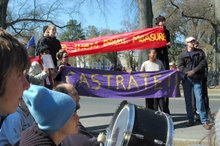




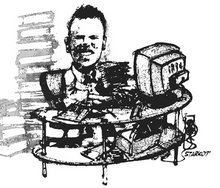
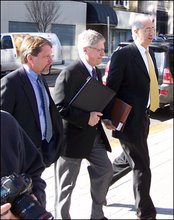
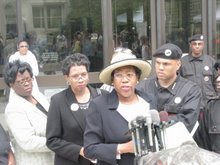
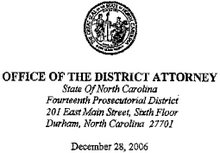
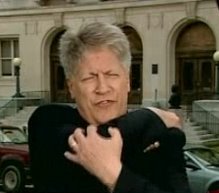

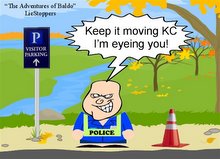

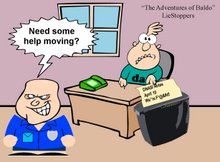

















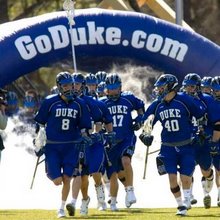

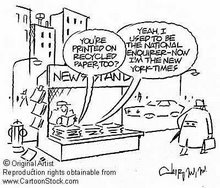

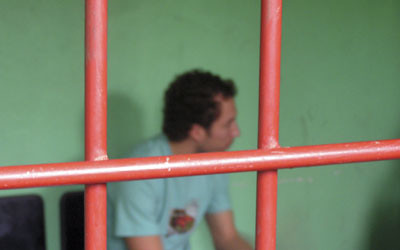



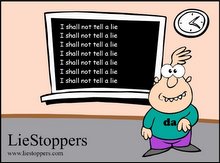






6 comments:
"I think it's almost a medieval, scholastic argument to argue about whether is there a constitutional violation if there's no trial."Mr. Chairman
What a smack down!
BTW Ms Jean is one smart State Bar attorney! I can't wait for her to get at Nifong!
And Freedman's later sarcastic response to Chair Williamson ... "I was going to say something, but I don't want to be accused of being medieval" ... was extremely disrespectful. He must follow the Nifong model of proper hearing decorum.
Lawyer Williamson is brillant - just as John Roberts and Alitio. Talk about a candidate for the Supreme Court. Is it true, he and Nifong were in law school together?I wonder if he has privately been laughing at Mike for thirty years? Partif this mess may have been Nifong wanting to show all these folk that he was somebody also.
As the UNC Law School class of 1978 gathers next year for their 30 year reunion, I wonder if Nifong will be a topic of conversation and whether Nifong is out of touch with reality enough to blissfully attend?
It occurs to me that if Nifong's "no harm, no foul...there's no trial yet" argument is accepted, then he has been granted permission to lie to the court.
Otherwise, Nifong would have been forced to answer differently when Judge Smith asked him whether he had turned all of the DNA evidence.
He would have had to say something like "I may have some items, but they are not material...or, I haven't decided they are relevant, or, I'm under no duty to disclose this material, etc."
But, in fact, he lied to the court and prevented the defense from arguing that the materials needed to be turned over. He usurped the court's authority.
Excellent point, 8:58, and I think that's the NC State Bar's position and concern as well. The question, then, becomes not one of whether or not Nifong will lose his license to practice law, but rather, on how many of the charges before him he will be found guilty. Caesar had reason to be 'ware the Ides of March. Napoleon had his Waterloo. Nifong is no Caesar and has but delusions of Napoleonic grandeur, but he should be 'ware the June hearing.
Post a Comment